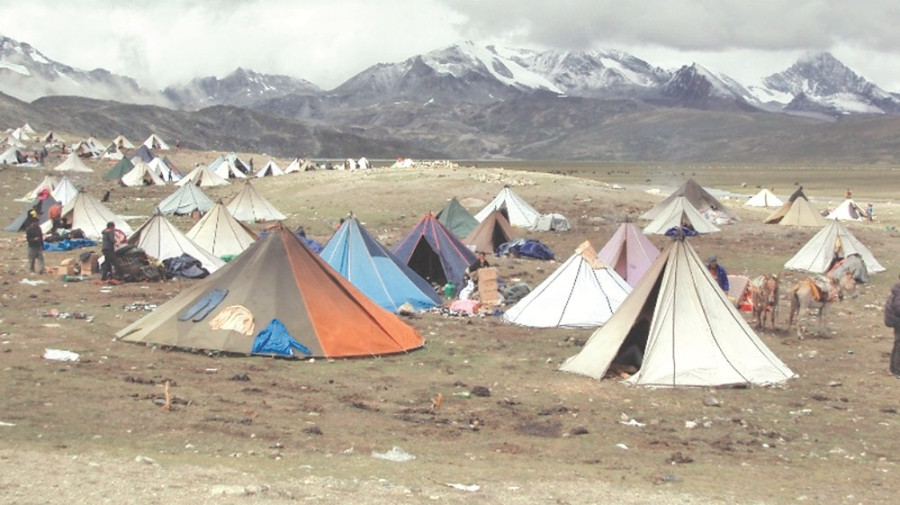Money
Nepalis flocking to Tibetan haat bazaars
Chinese traders have set up annual haat bazaars on the Tibetan side of Hyajimar-Mugu and Kyatochhongra-Dolpa border points.
Bishnu Lal Budha & Raj Kumr Shahi
Chinese traders have set up annual haat bazaars on the Tibetan side of Hyajimar-Mugu and Kyatochhongra-Dolpa border points.
Nepalis living in bordering areas of Mugu, Humla, Jumla and Dolpa districts visit Hyajimar, while the residents of upper Dolpa travel to Kyatochhongra to purchase essentials from the haat bazaars set up every year during this time of the year. It is convenient for the Nepalis living in these areas to purchase necessary goods from the Chinese markets given the lack of road infrastructure on the Nepali side.
The Nepali people purchase carpets, quilts, blankets, liquors, pulses, rice, sugar, tea, coffee, ghee and wheat flour from the markets. Karma Norbel Tamang, a resident of Mugu village, said a caravan of Nepalis was heading towards the haat bazaars in Tibet which last for 10-15 days. The Nepalis also sell buckwheat, yarsagumba and other medicinal herbs to the Chinese.
It takes around four days to reach Hyajimar from Gamgadhi, the district headquarters of Mugu. Besides bringing in essentials, the Nepalis also purchase mountain goats from Tibet which are resold in Nepal for the Dashain festival.
Every year, before opening the temporary market, a Chinese team arrives in the bordering Nepali village of Mugu and sign a trade agreement with locals. Once the two sides sign the agreement, the temporary markets are opened.
Chief District Officer Keshav Raj Sharma said they have mobilised Armed Police Force and Nepal Police to control smuggling.
Meanwhile, the temporary market in Kyatochhongra opened on Friday. Nepalis from Upper Dolpa to sell their medicinal herbs, beside purchasing daily essentials from the market.
Tasi Tundup Gurung, a resident of Saldang village, said people from Tinje, Bhijer, Saldang, Dho, Chharka, Phoksondo and Mukot go to the bordering Chinese market to purchase of daily essentials in huge quantity for rest of the year. The market runs for 7-15 days. The Chinese authorities provide temporary entry permits to the Nepalis.




 20.12°C Kathmandu
20.12°C Kathmandu














